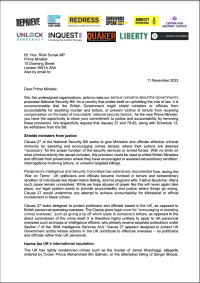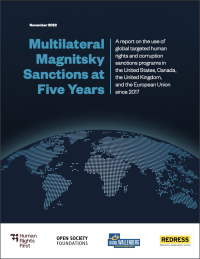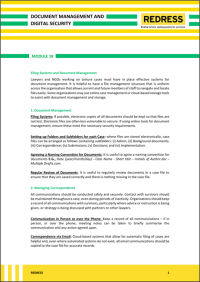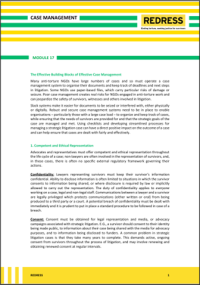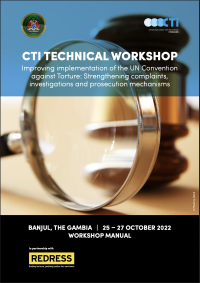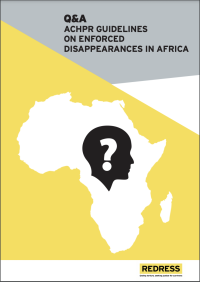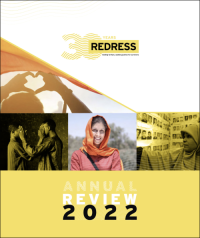Publications
REDRESS’ publications are also available in hard copy format. Please contact us for further information on [email protected].
This letter, signed by a coalition of NGOS, raises serious concerns about the UK government’s proposed National Security Bill, in particular, the possibility that it might shield ministers or officials from accountability for assisting murder and torture, or prevent victims of torture from receiving compensation on the basis of inscrutable ‘national security factors’. The letter requests that clauses 27 and 79-83, along with Schedule 13, be withdrawn from the Bill.
This report focuses on the use of global targeted human rights and corruption sanctions programs in the United States, Canada, the United Kingdom and the European Union since 2017, highlighting the gaps in the use of these sanctions. The report has been co-authored by leading human rights organisations Human Rights First, Open Society Foundations, Raoul Wallenberg Centre for Human Rights and REDRESS.
This training module gives an overview of filing systems and document management. It also explains the general principles of digital security for effective case management.
This Practice Note highlights some good practices for case management in the context of torture and ill-treatment. It also covers the basic building blocks of effective case management such as competent and ethical representation, case enquiries, a survivor-centred intake process and building a case strategy.
This Workshop Manual provides an overview of UNCAT anti-torture standards related to the issues covered in this Workshop, and examples of legislative provisions of other common law African States. It was designed to ensure the Workshop is conducted in a manner that is informed, engaging, practical, and realistic. This Booklet is comple- mented by additional CTI and REDRESS material.
On 13 May 2022, the African Commission on Human and Peoples’ Rights (ACHPR) adopted the Guidelines on Enforced Disappearances in Africa (EDA Guidelines) at its 71st Ordinary Session in Banjul, The Gambia. This Q&A addresses the key concepts and terminology, the main contexts in which enforced disappearance (ED) happens in Africa, the rights infringed upon by this crime, the main obstacles faced by victims seeking justice, and the States’ obligations.
This Annual Review provides an overview of the activities and achievements carried out by REDRESS from April 2021 to March 2022, with coverage of developments up until the date of printing in select areas. Among our successes this year is the release of British-Iranian hostage Nazanin Zaghari-Ratcliffe, for which REDRESS campaigned for six years alongside her husband Richard, and a new initiative to repurpose assets from perpetrators of torture for victims. We also continued to work for justice of survivors of torture in the UK and elsewhere, including through a ground-breaking decision on the torture of a female human rights defender in Libya.
REDRESS and the Centre for the Development of People (CEDEP) made this submission to draw the Committee against Torture’s attention to the issue of discriminatory violence affecting individuals identifying or perceived as LGBTIQ+ in Malawi. This submission is based on our extensive experience working against torture and on LGBTIQ+ issues in Malawi.
